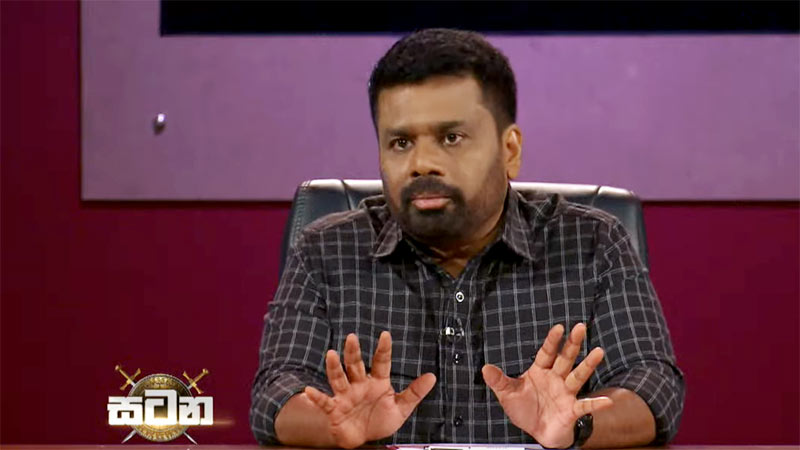Sri Lanka President clarifies Trincomalee port deal and upcoming electricity tariff hike

Sri Lankan President Anura Kumara Dissanayake has clarified key issues surrounding the Trincomalee Port agreements with India and announced a scheduled increase in electricity tariffs, during his appearance on the “Satana” political talk show.
Trincomalee Port Deal: No Final Agreement Yet
Amid growing concerns and criticism from opposition parties, President Dissanayake addressed the status of agreements related to the Trincomalee Port and associated energy infrastructure.
He described Trincomalee as one of the best natural harbors in the world, highlighting its deep-water capability and strategic location near major maritime routes. The port contains 98 oil tanks, 24 managed by the Ceylon Petroleum Corporation (CPC), 12 by the Indian Oil Company (IOC), and 61 currently unused. Each tank has a capacity of 12,500 metric tons.
The President stressed that no final agreement has been signed with India. Instead, a Memorandum of Understanding (MoU) was signed to explore the potential of the port and prepare a business plan. “Only if we agree with the business plan will we proceed to a formal agreement,” he said.
A joint venture involving India, the UAE, and Sri Lanka is proposed to develop the tank farm and related infrastructure. The committee formed under the MoU is also studying the possibility of building a refinery and the logistics for transporting crude oil.
He dismissed fears that the deal would make Sri Lanka dependent on India for energy. “The CPC will continue to purchase fuel through competitive tenders. Just because pipelines are built doesn’t mean all fuel will come from India,” he said.
President Dissanayake also noted a separate USD 3 billion refinery investment by China’s SINOPEC in Hambantota. He emphasized that even SINOPEC must compete through the same CPC tender process, reinforcing the government’s commitment to fair competition and national interest.
Electricity Tariff to Increase in June
Turning to the electricity sector, President Dissanayake confirmed that electricity tariffs will be revised upward on June 1, 2025, in line with International Monetary Fund (IMF) recommendations for cost-reflective pricing.
“The Treasury cannot keep subsidizing the Ceylon Electricity Board (CEB) forever. Prices must reflect actual production costs,” he said. He added that while the government can support vulnerable groups like fishermen through the Treasury, state enterprises like the CEB and CPC must run on commercial terms.
The CEB is currently burdened with Rs. 220 billion in legacy debt, which has now been restructured. A portion of this debt will be included in the new tariff. However, the President assured that the new rates will still be lower than those in December 2024.
“This is not an election gimmick. It’s a scheduled adjustment based on projections and regulatory oversight by the Public Utilities Commission of Sri Lanka (PUCSL),” he said.
Energy Sovereignty and National Security
President Dissanayake strongly defended the government’s energy policy, linking energy sovereignty directly to national security. He warned that failure to recover costs and manage debts could lead to the collapse of the CEB and the country’s power infrastructure.
He also reaffirmed that electricity distribution remains under full state control, despite allowing private sector participation in generation. “Whoever generates power, it must be sold to the CEB. This ensures the energy sector remains in government hands,” he emphasized.
The President concluded by saying the government will protect state ownership of key energy infrastructure and oppose any efforts to privatize the CEB.
Latest Headlines in Sri Lanka
- Johnston Fernando, two sons and others further remanded until February 13, 2026 January 30, 2026
- Sri Lanka raises daily wage of plantation workers to Rs. 1,750 January 30, 2026
- Sri Lanka expands Internal Affairs Units to 250 more state institutions January 30, 2026
- Three arrested over Rs. 17 Million Lanka Sathosa garlic scam January 30, 2026
- Businessman arrested over Rs. 30 Million money laundering case linked to former minister January 30, 2026


